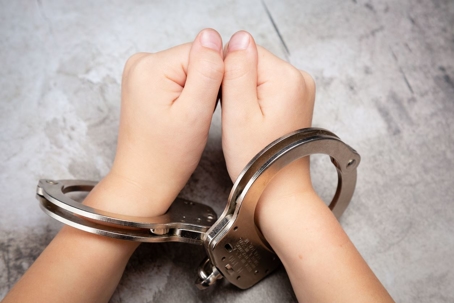The criminal justice system is complex, and many people are unaware of the laws and regulations surrounding it. In particular, the juvenile justice system can be confusing and leave many unanswered questions about when a juvenile is charged as an adult.
1. Age Limits and Court Discretion
As per the Juvenile Justice and Delinquency Prevention Act, a juvenile is typically defined as a person who is under the age of 18 years. In most states, a legal process determines when a juvenile will be charged as an adult. However, some states have laws allowing juveniles as young as 13 years to be charged as adults. The court discretion plays a crucial role in determining whether a juvenile should be charged as an adult. They may consider the nature of the offense, the juvenile's age, prior criminal history, and other factors relevant to the case.
2. Seriousness of the Crime
One of the main factors determining whether a juvenile will be charged as an adult is the seriousness of the crime committed. If the juvenile commits a violent crime such as rape, murder, or aggravated assault, they may face trial as an adult. It is considered that the heinous nature of the crime warrants a harsher punishment and rehabilitation approach, which is otherwise not available in the juvenile justice system.
3. Juvenile’s Criminal History
The juvenile's criminal history also plays a significant role in decision-making. If the juvenile has a history of committing offenses or is a repeat offender, the judge may decide to charge them as adults. This is because the juvenile may not benefit from the juvenile rehabilitation system, which focuses on a more lenient approach for first-time offenders. Moreover, they may threaten public safety, and a harsher approach is necessary to provide the necessary deterrence that may prevent future criminal activities.
4. Other Factors
Several other factors can come into play when deciding whether to charge a juvenile as an adult. Factors such as the impact of the crime on the victim, the juvenile's family background or mental state, and the juvenile's capacity to understand the consequences of their actions can all be taken into account. The court can also legally consider the safety of both the juvenile offender and the public, which can sometimes lead to a decision to charge a juvenile as an adult.
5. Sentencing and Rehabilitation
When a juvenile is charged as an adult, the juvenile justice system's rehabilitation policies may not apply. Depending on the state, the juvenile may face the same penalties as an adult, including imprisonment and fines. Rehabilitation programs offered in the juvenile system may not be available in the adult system, making the transition to life after prison more difficult. It is, therefore, essential to consider other forms of rehabilitation and reintegration programs that can aid juveniles in transitioning back into society after release.
Juvenile Offenses Lawyer Des Moines, IA
Understanding when juveniles are charged as adults is essential for both parents and juveniles facing criminal charges. By familiarizing yourself with the factors involved, you can make informed decisions and seek the best legal representation for your child. At Branstad & Olson, we are dedicated to providing comprehensive legal services to juveniles charged as adults in Des Moines, IA. Contact us today at (515) 329-3100 for a consultation, and let us help you navigate through this difficult process.

